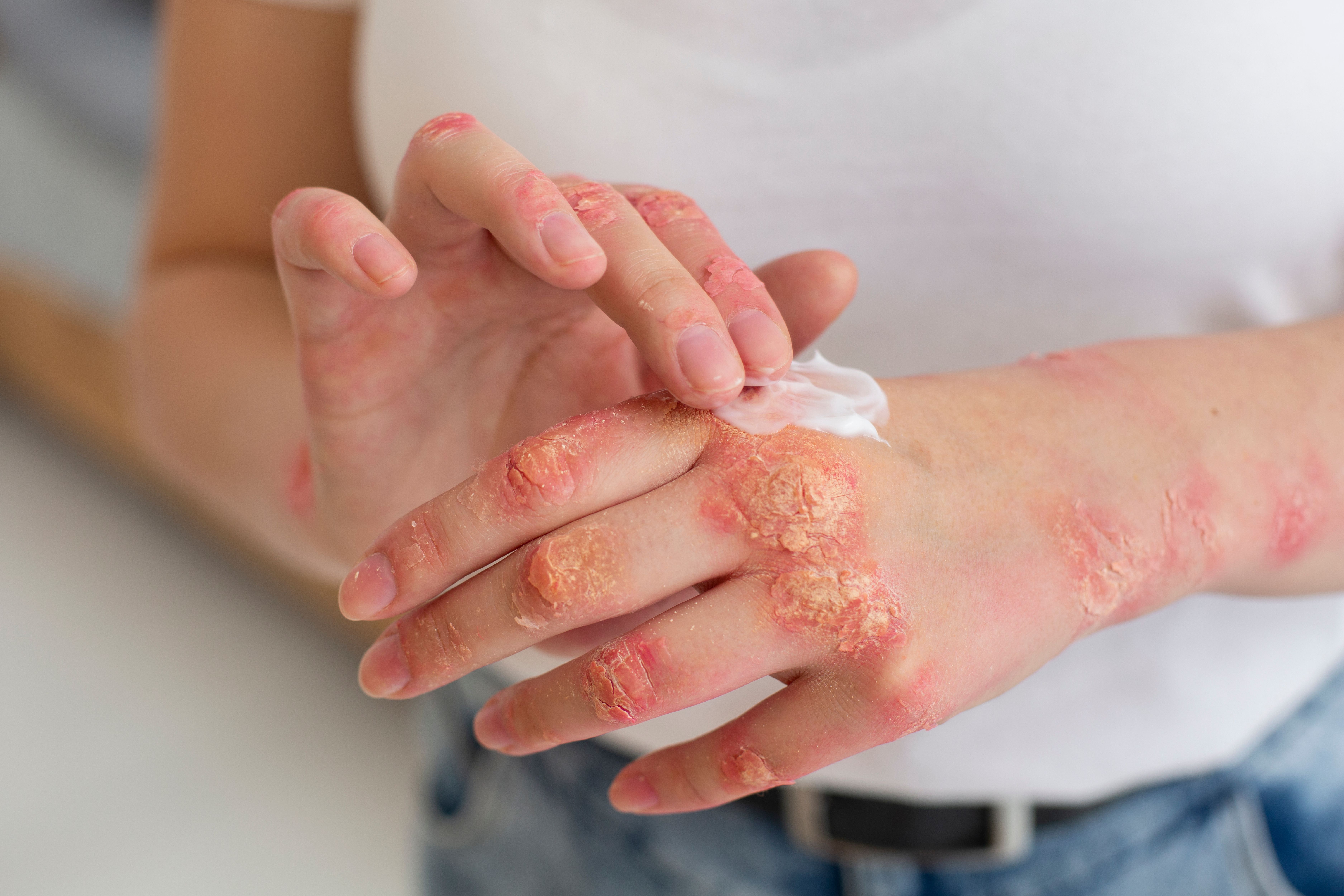Skincare
Understanding atopic eczema and newer effective treatment options
Read on to see how recent advancements are transforming care and offering renewed hope for those living with atopic dermatitis.
26 March 2024
Share

Atopic dermatitis, also known as atopic eczema, is the most common form of eczema. Individuals with this condition experience recurrent flares, often characterised by itchy, red, and inflamed skin. These symptoms can be debilitating, significantly affecting participation in school, work, and social activities. In Singapore, atopic dermatitis affects up to 20% of school-going children and 10% of young adults. According to The Straits Times, public healthcare institutions have reported an increase in moderate to severe cases. These more severe cases account for about 25% of all eczema cases, with 15% being moderate and 10% severe.
Those with moderate to severe atopic dermatitis often experience a significant decline in their quality of life and require close follow-ups with dermatologists for comprehensive treatment.
Conventional treatment options
Effective management of atopic eczema involves a holistic approach, starting with avoiding triggers and making environmental modifications to prevent flare-ups. Regular use of moisturisers and gentle cleansers helps combat dryness and restore the skin’s barrier function.
Topical and oral treatments: Corticosteroids and calcineurin inhibitors are commonly used to control inflammation. Potency varies and should be tailored to minimise side effects. Oral antihistamines are often added to control itching.
Advanced conventional therapies for moderate to severe atopic dermatitis include phototherapy and oral immunosuppressants. Phototherapy, while effective, poses challenges for school-going children and working adults due to the significant time commitment required. Oral immunosuppressants, on the other hand, demand regular laboratory monitoring and follow-up consultations to manage potential side effects effectively.
New treatment options for atopic eczema
Recent advancements have led to the approval of novel therapies that influence specific pathways involved in atopic eczema.
Biologics like dupilumab, a form of targeted therapy, which is approved for moderate-to-severe atopic eczema in children and adults. There are also oral Janus Kinase (JAK) Inhibitors, like abrocitinib, upadacinitib and baricitinib, which target the inflammation pathways implicated in atopic eczema.
Newer topical agents include the phosphodiesterase-4 (PDE-4) inhibitor, like crisaborole ointment, which are applied to the skin to treat mild to moderate forms of eczema. These treatment options are now incorporated into guidelines used by dermatologists to treat atopic eczema.
Although new therapies are available, it is still a requirement for an assessment by your doctor for suitability. It is also equally important to continue to have regular follow-ups to monitor treatment efficacy, adjust therapies, and manage any side effects.
Take charge of your skin’s health
It’s important to note that atopic eczema is a chronic condition that demands a comprehensive and collaborative approach to management. Building a trusted partnership with a dermatologist is essential for long-term success. Beyond medical treatments, self-empowerment and consistency play pivotal roles in managing the condition effectively.
Taking control of your skin health starts with understanding the nature of your condition, identifying triggers, and adhering to a personalised treatment plan. For patients with moderate-to-severe disease, advancements in therapeutic options bring new hope, offering improved outcomes when combined with conventional treatments. By integrating these newer options with conventional therapies, tailored treatment can now be utilised to provide more effective management of atopic eczema.
Schedule a consultation with our Dermatologist, Dr Kok Wai Leong, today.
Book an appointment:
Call us: 6322 6333
WhatsApp us: 9655 2101
References
- Cheok S, Yee F, Song Ma JY, Leow R, Ho MSL, Yew YW, Tay YK, Rebello SA, Luo N, Koh MJA. Prevalence and descriptive epidemiology of atopic dermatitis and its impact on quality of life in Singapore. Br J Dermatol. 2018 Jan;178(1):276-277.
- Teo, J. Singapore seeing more cases of moderate to severe eczema. The Straits Times [Online]. 2024. (Accessed 20 December 2024).
- Yew YW, Alagappan U, Aw D, et al. Updated consensus guidelines for management of moderate-to-severe atopic dermatitis in Singapore: Integrating biologics, Janus kinase inhibitors and conventional therapies. Ann Acad Singap Med 2024;53:670-82.



